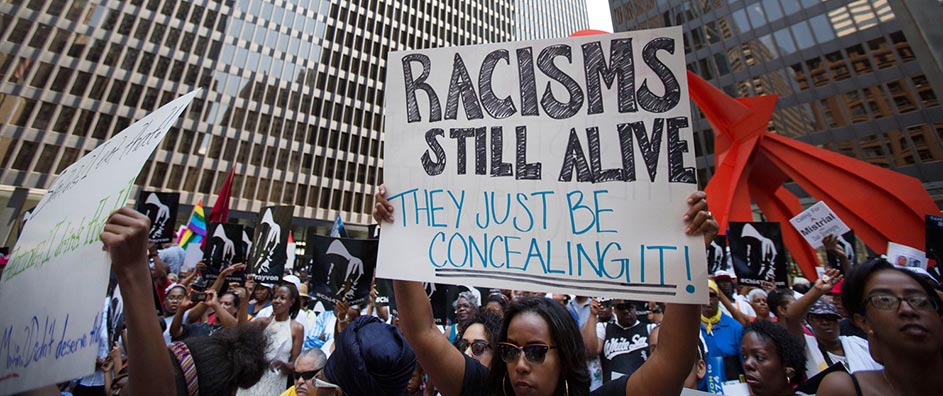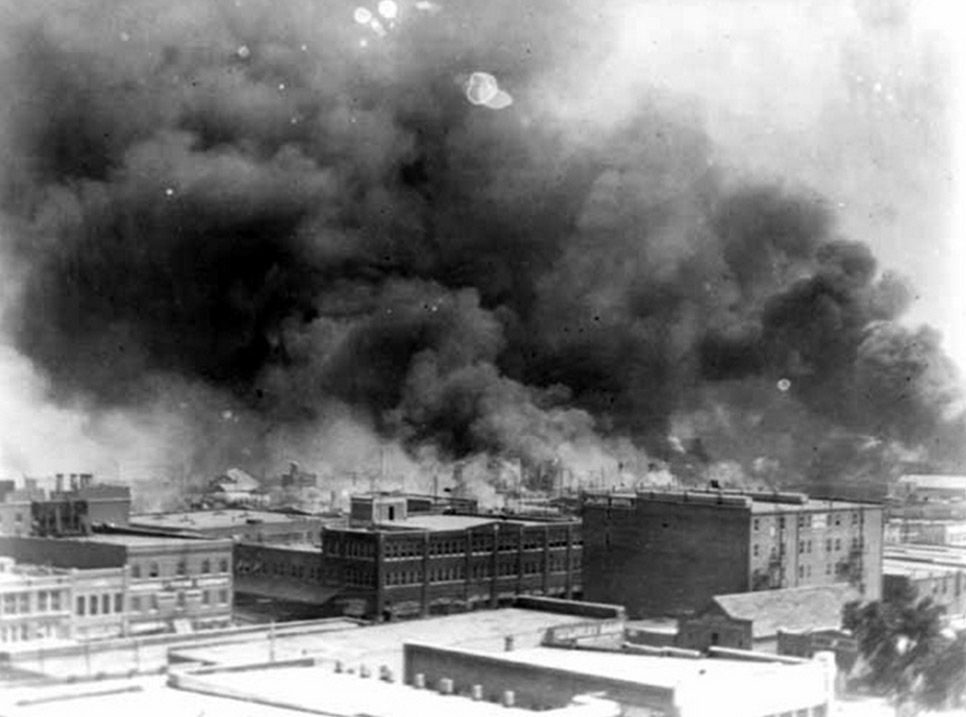The views expressed in our content reflect individual perspectives and do not represent the authoritative views of the Baha'i Faith.
Many historians say that a large portion of the world’s cultures, during the last century or so, have made enormous progress in dealing with bias, bigotry, prejudice and racism.
We’ve got a long way to go, no doubt about it. Racism still plagues us, in just about every culture. But if you take a look at most measures of growth and development, our societies have arguably made very significant strides in dealing with issues of race. We’ve moved past the era of lynchings and white race riots—like the 1921 Tulsa riot, when whites attacked and burned the entire 35-block black part of town, killing as many as 300 black people. We’ve ditched Jim Crow laws and miscegenation laws and passed civil rights laws. And, in one of our most under-appreciated and unrecognized giant steps toward eliminating racism, we’ve come to a general global understanding that racial prejudice is wrong. Remarkably, that major shift has happened in the relatively short space of a few generations.
My own family’s story tells one microcosmic part of the tale. I grew up in a household I’d call casually racist. My white parents, especially my father, had the typical racial biases and prejudices of his so-called “greatest” generation. He used the N-word in everyday conversation. He felt the races were better off segregated from each other. He saw himself, probably without thinking about it much, as superior to people of color. He wasn’t a virulent racist or a vicious hater—in fact, I once heard him call the Ku Klux Klan “imbeciles”—but he certainly had no desire or inclination to socialize or “mix” with any African American. Here’s how deeply ingrained his prejudices were: when I was a teenager he once tried to prevent me from buying a used car, because, he said, in a confidential whisper I’ll never forget, “that car was owned by colored people.”
Growing up I gradually came to understand the ignorance of my father’s attitudes, and I rebelled against them. I became a Baha’i and began to try to apply the Baha’i principle of the oneness of humanity in my life. Deeply involved in the civil rights movement and in the polyglot, racially-diverse and multicultural Baha’i community, I rejected my father’s prejudices and worked hard to rid myself and my society of their impact. When my wife and I raised our kids, we taught them that prejudice and racism were wrong. Now, my wife and I have grown children who have married across racial, cultural and national boundaries; and we’ve been blessed with an African American grandchild. In three generations, our family has moved a long way past the racist legacy of my father’s abhorrent attitudes.
Much of the world has followed a similar course. As each generation comes of age, the ingrained racism of past generations often gives way to more enlightened attitudes. We now understand, in an increasingly universal way, that the ignorant racism and rampant ethnic prejudice which caused the Holocaust, and the colonialist extermination of African and American Indian tribal cultures, and the violent repression of black people in post-Civil War Jim Crow America, can no longer be personally or institutionally justified. Baha’is believe, as the Universal House of Justice wrote to the leaders of the world’s religions a dozen years ago, that humanity must eventually relegate institutionalized racism to the toxic waste dump of forgotten and obsolescent doctrines:
Racial and ethnic prejudices have been subjected to equally summary treatment by historical processes that have little patience left for such pretensions. Here, rejection of the past has been especially decisive. Racism is now tainted by its association with the horrors of the twentieth century to the degree that it has taken on something of the character of a spiritual disease. While surviving as a social attitude in many parts of the world — and as a blight on the lives of a significant segment of humankind — racial prejudice has become so universally condemned in principle that no body of people can any longer safely allow themselves to be identified with it.
It is not that a dark past has been erased and a new world of light has suddenly been born. Vast numbers of people continue to endure the effects of ingrained prejudices of ethnicity, gender, nation, caste and class. All the evidence indicates that such injustices will long persist as the institutions and standards that humanity is devising only slowly become empowered to construct a new order of relationships and to bring relief to the oppressed. – To the World’s Religious Leaders, April, 2002, from The Universal House of Justice, pp. 5-6.
So yes, we still have a long road ahead–but we are moving ahead on that road. Baha’is attribute society’s forward movement to Baha’u’llah’s revelation of the central Baha’i principle of the oneness of humanity, and to the extreme sacrifices so many people have made for racial justice, and to the ongoing struggle for equality on the part of everyone who commits their altruistic, visionary efforts to the progress of such a noble cause. From a Baha’i perspective, however, that kind of progress requires a serious personal commitment:
These meetings [for racial unity] teach us that Unity is good, and that suppression (slavery under the yoke of tradition and prejudice) is the cause of disunion. To know this is not enough. All knowledge is good, but it can bear no fruit except by action… We hope the people realize and know that unity is good, and we also hope that they will not be content to stand still in that knowledge. Do not only say that Unity, Love and Brotherhood are good; you must work for their realization. – Abdu’l-Baha, Abdu’l-Baha in London, p. 60.
In some significant ways, the recent American spate of police and vigilante killings of unarmed young black boys and men have made our unfinished work on race glaringly apparent. One independent analysis of FBI data by the non-profit media agency ProPublica, for example, shows that young black males have 21 times more risk than their white counterparts of being shot dead by police:
The 1,217 deadly police shootings from 2010 to 2012 captured in the federal data show that blacks, age 15 to 19, were killed at a rate of 31.17 per million, while just 1.47 per million white males in that age range died at the hands of police.
This startling risk analysis supports what the African American community has claimed for decades: police kill black people with much greater frequency, and with more impunity, than any other population group.
Now that we know this important information, the question obviously becomes “As a society, what are we going to do about it?” Or, as Abdu’l-Baha might put it, “How will we work for the realization of unity, love and brotherhood?”

















Comments
Sign in or create an account
Continue with Googleor